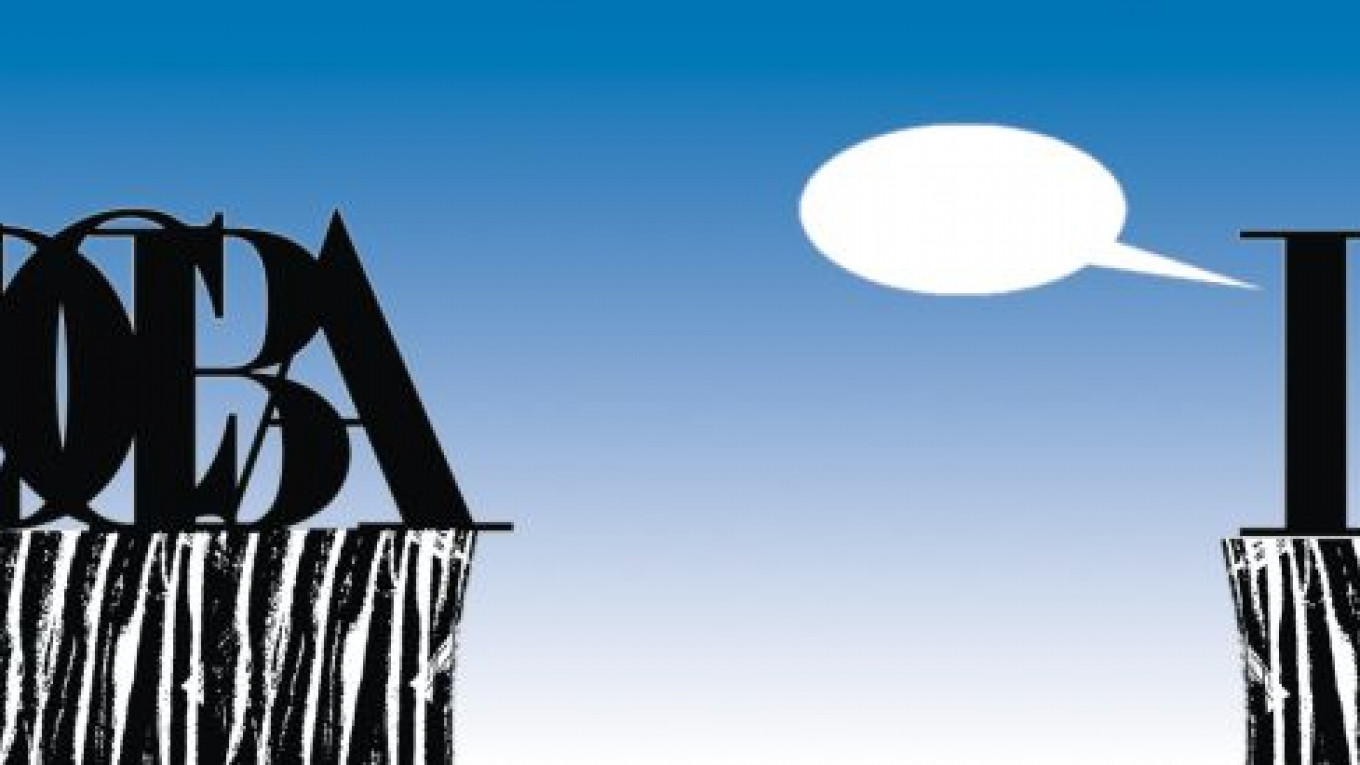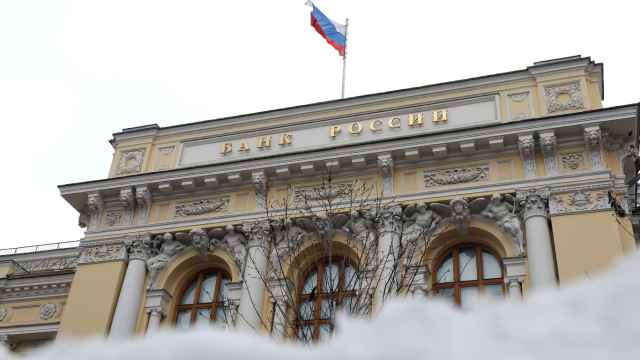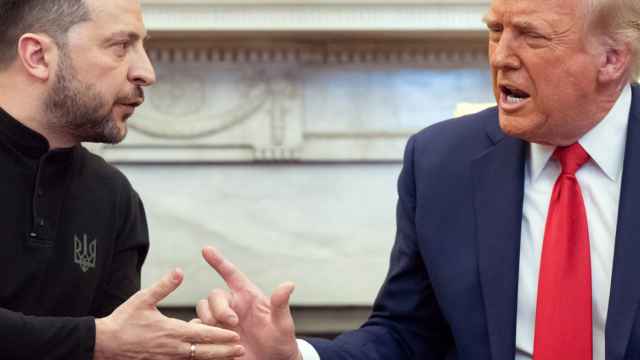One well-known Soviet-era joke includes the phrase: "Whenever a Russian worker tries to assemble a car, he ends up making a machine gun every time." Former Prime Minister Viktor Chernomyrdin paraphrased that to comment on the political party that preceded United Russia, saying, "No matter what party we establish, we always end up with the Communist Party." And I would add a similar observation: Whatever tragedy the Russian authorities set out to address, they always end up turning it into a farce.
That is what happened recently with the serious subject of orphans. The discussion ended with the passage of the disgusting and hypocritical "Dima Yakovlev" law. And now we have legislation prohibiting State Duma deputies, government officials and their families from holding overseas bank accounts. United Russia is presenting this legislation to the public as a revolutionary measure that will practically put an end to corruption. A new phrase was even coined: "the nationalization of the elite."
I must say that I wholeheartedly support such a nationalization. My party, A Just Russia, along with the Communist and the Liberal Democratic parties, has always maintained that the elite do not believe in their country. They keep their money overseas and buy homes, educate their children and develop production there as well. At the same time, they do not bring best Western practices into play at home. The officials who are model, law-abiding citizens, far-thinking entrepreneurs, philanthropists, fine arts connoisseurs and patrons of sport beyond Russia's borders turn into shameless thieves on Russian soil, squeezing the last ruble out of collapsing companies, finding ways to avoid taxes and living in swanky homes behind 3-meter-high fences on Rublyovka. These people behave like invaders on occupied territory. They are the real foreign agents who pillage Russia and take the spoils to the West. They are the ones who have made wealth and thievery synonymous in this country. They are the ones who have discredited the idea of freedom and democracy in Russia. And it is easy to determine which of them should be arrested: The higher the fence protecting their dacha, the more they have to hide.
Every Russian citizen should consider it his or her sacred duty to fight against such an elite. President Vladimir Putin, in a skillful attempt to channel public outrage against the very people he has spent the past 12 years helping to enrich and protect, has used the state-controlled airwaves to mount a fake anti-corruption campaign that will make no substantial changes to the status quo. He has even managed to drive a wedge between the more conservative and liberal wings of the traditional opposition Duma parties.
Following the summary dismissals of former Defense Minister Anatoly Serdyukov and former Duma Credentials and Ethics Committee chairman Vladimir Pekhtin, United Russia claims that the country doesn't have any "untouchables" anymore. But Russia never did have any untouchables under Putin. Just call to mind former Yukos CEO Mikhail Khodorkovsky. Putin has always made it clear that he can take anything from anyone at any time. But in the past, the rules were clear: If an official was loyal to the system, refrained from airing dirty laundry and acted mercilessly toward those who opposed the system, he could steal and squander with complete impunity. Time does not even permit me to list the countless examples of this.
But late last year, the situation changed dramatically.
The elite no longer know what is happening. Deputies wander the halls of the Duma in confusion. Their portraits are waved about by street protesters, and the number of names on the "golden pretzel" list of officials implicated in corrupt dealings continues to grow. Ministers don't know which decisions to make, but they know with certainty that they'll be held accountable for them and that the government could be dissolved at any moment. Governors are apparently still dependent on the Kremlin, but now must distance themselves from the Kremlin's unpopular laws if they hope to be elected.
On the anti-corruption front, I co-authored a bill with outspoken, pro-Kremlin Deputy Sergei Zheleznyak calling for criminal proceedings against politicians who do not declare their overseas property and financial holdings. The goal was to give officials the freedom to hold foreign assets and voters the right to know about them. However, just a week after we introduced that legislation, four deputies representing each of the Duma factions presented a competing bill that would ban ownership of all foreign accounts and property. Obviously, a bill with such a touching unity would never have been introduced without backing from the presidential administration. The intention of the new bill is clear: Set the bar so high that it can never be met, but apply the law selectively against individuals the Kremlin wants to manipulate or dismiss.
That bill ran up against hurdles that were only overcome when Putin introduced his own version of the law — which United Russia hurried to adopt in favor of its own. The final text was a compromise stating that officials could own property overseas, but not bank accounts or other assets. Of course, managing a foreign property without a foreign bank account is hardly possible, but this is the whole point of the new legislation: to turn more people into criminals.
Thus, in place of fighting corruption and promoting the interests of the people and the economy as the opposition movement has sought to do, the new legislation only adds yet another tool for manipulating lawmakers to the Kremlin's already sizable arsenal.
Ilya Ponomaryov is a State Duma deputy with A Just Russia.
A Message from The Moscow Times:
Dear readers,
We are facing unprecedented challenges. Russia's Prosecutor General's Office has designated The Moscow Times as an "undesirable" organization, criminalizing our work and putting our staff at risk of prosecution. This follows our earlier unjust labeling as a "foreign agent."
These actions are direct attempts to silence independent journalism in Russia. The authorities claim our work "discredits the decisions of the Russian leadership." We see things differently: we strive to provide accurate, unbiased reporting on Russia.
We, the journalists of The Moscow Times, refuse to be silenced. But to continue our work, we need your help.
Your support, no matter how small, makes a world of difference. If you can, please support us monthly starting from just $2. It's quick to set up, and every contribution makes a significant impact.
By supporting The Moscow Times, you're defending open, independent journalism in the face of repression. Thank you for standing with us.
Remind me later.






